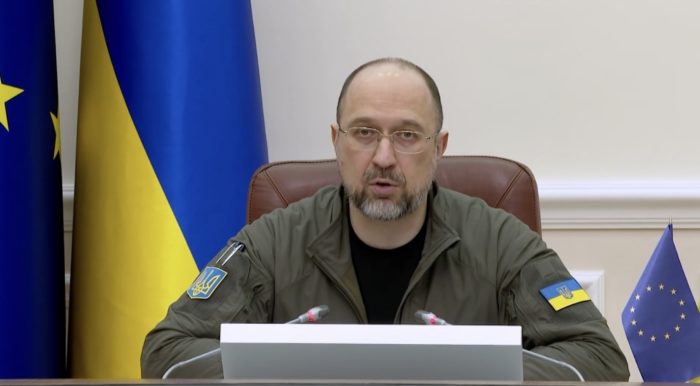As Ukraine stands firm against the unprovoked Russian invasion, its leadership continues to emphasize the importance of the international support. In an interview with BBC, Prime Minister Denys Shmyhal has issued a poignant call to the Western leaders, reminding of the grave consequences should Ukraine falter in this existential struggle.
Shmyhal warned, "If we will not protect… Ukraine will fall. So the global, the global system of security will be destroyed… and all the world will need to find… a new system of security. Or, there will be many conflicts, many such kinds of wars, and in the end of the day, it could lead to the Third World War."
These words echo the call of President Volodymyr Zelensky, who previously cautioned that a Russian victory could embolden further aggression, potentially engulfing even NATO territories and sparking an unprecedented global conflagration.
Shmyhal's urgent plea comes as the United States Congress deliberates on a critical $61 billion aid package for Ukraine, a lifeline that could tip the scales in this defining battle for democracy and self-determination. "We need this money yesterday, not tomorrow, not today," Shmyhal stressed, underscoring the grave urgency of the situation.
Despite the Kremlin's dismissive rhetoric, the reality on the ground paints a dire picture. Ukraine's forces, outnumbered and outgunned, have been forced into strategic retreats, including the recent loss of Avdiivka, a town near Russia-occupied Donetsk. President Zelenskyy has cited an "artificial deficit of weapons" as a primary factor in these setbacks, highlighting the critical role that robust international support plays in Ukraine's ability to defend itself.
Russia has transformed its industrial base into a wartime economy, devoting 40% of its national budget to armaments and striking deals with rogue states like Iran and North Korea for ammunition, missiles, and drones. This underscores the existential nature of the war for the Kremlin, which appears willing to sacrifice its people and resources in pursuit of its imperialistic ambitions.
As Prime Minister Shmyhal noted, "We should understand that disinformation and propaganda is influencing here in the United States on many people, in European Union on many people, such as in Ukraine."
The aid package for Ukraine from the United States has been significantly delayed in Congress, impacting Ukraine's defense capabilities against Russian aggression. The Senate passed a $95 billion emergency funding bill, which allocates over $60 billion specifically for Ukraine, but it is currently stalled in the House of Representatives. House Speaker Mike Johnson has hesitated to bring the bill to a vote, citing the need to avoid rushing and to address Republican demands for modifications.
On April 17, US House Speaker Mike Johnson announced plans to split this package into three separate bills, aiming for a vote on April 20. This move aims to address national security interests and includes funding for allies like Israel and the Indo-Pacific region, with an innovative loan structure for aid and enhanced accountability measures.
This delay is critical as Ukrainian President Volodymyr Zelenskyy has warned about the dire consequences of not receiving the aid, including a potential retreat in the face of Russian advances due to shortages of critical military supplies like air defenses and artillery ammunition.
Read also:




